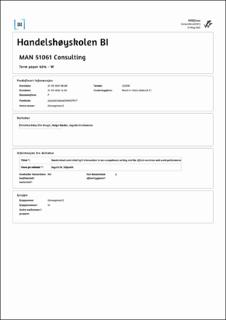Randomized controlled light intervention in an occupational setting and the effects on stress and work performance
Master thesis

Permanent lenke
https://hdl.handle.net/11250/3029242Utgivelsesdato
2022Metadata
Vis full innførselSamlinger
Sammendrag
Background: Coping with stress is crucial for the individual to retain a healthy work-life balance, work satisfaction and work performance. Light has powerful effects on mood, sleep, and the circadian biorhythms, and disruption of circadian biorhythms is associated with several diseases. Here we examine the relationship between positive stress and work performance, and if outdoor light exposure positively affects both stress and work performance.
Methods: We performed randomized controlled trial with light intervention with 18 subjects in a call center, and we assessed various parameters of work performance and stress.
Results: We identified positive correlation between some of the stress parameters and work performance parameters, including a positive correlation between work performance parameters and the affect part of the stress experience. We did not find such correlation with the perceived stress part or the circadian vulnerability part of the stress experience, nor with the stress arousal response. The light intervention did not positively affect the different stress parameters or work performance parameters.
Conclusions: Our studies constitute an important first pilot with regards to finding relationships between occupational stress and employee-level performance. We tested an intervention with outdoor lunchtime light exposure as a simple measure that can be easily adapted in work environments if supported by data. Hence, although our light intervention data did not confirm the partially beneficial effects of light exposure from our initial exploratory studies (Hypothesis #1), further studies of this exiting relationship is warranted, building on the suggested framework. A bigger size of the study population and a longer duration of the studies would be recommended for future studies.
Beskrivelse
Executive Master of Management i Consulting fra Handelshøyskolen BI, 2022